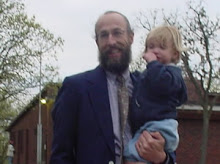Stone Soup: A Faculty Fable
I wrote this funny little fable not so long ago. I was being given an award for a faculty program called "Stone Soup." One each Friday of the academic year, faculty gather for informal talk about teaching in our campus' restaurant. Nobody tells anyone what to talk about; we just talk. Anyway, I was asked to describe "Stone Soup" to an audience of teaching and learning leaders on campuses across Minnesota. So this is what I wrote:
Once upon a time, there was a very wise, very talented, very competent professor named Grace. She taught at Riverside University, a moderately-sized institution, in a medium sized town, in a state in the middle of the U.S. Grace had been teaching for 10 years. For the longest time, she loved her students, loved her courses, was a productive scholar, was active on numerous committees in her Department as well as on university-wide committees. Grace was tenured and promoted and generally recognized by her colleagues as a valued member of their community.
In the fullness of time, however, Grace got tired. She was less able to think of new ways to approach her teaching and to help her students learn better and deeper. Her scholarship seemed to dry up – she couldn’t think of research questions that seemed valuable and she couldn’t seem to gather the energy to do research. Conflicts in her department or across the university – even minor ones – made her want to hide. And the more she hid, the more hiding became a habit. She kept her head down. Prepared for her classes. Graded her papers. Went to her meetings. Went home tired. Woke up tired. Seldom talked to colleagues about anything that didn’t seem mundane. And so Grace began to feel lonely. Grace had ennui.
But she was disinclined to give up on the work that she had loved for so long and in which she invested so much of her time and care. So Grace went to her colleagues and friends across the University. She described her struggle for professional renewal. She asked for their help. “Can you look at my course materials or observe me teach and give me feedback?” Can you read a draft of my article?” “Oh yes,” said her friend Bob when he heard her story. “I feel that way too. I’ve got nothing left to give. Just do my work, go home, and go to bed.” “Oh yes,” said her friend Kiesha when she heard Grace’s story. “I feel that way too. I’ve got nothing left to give. Terrible, isn’t it?” All over campus, Grace got the same response. “Feel that way too. So Sorry. No time. I’m so burned out.” “Workload issues.” “Damn administrators!” Eventually, word went out that Grace was coming. Faculty closed their doors, screened their calls, and muttered to themselves as they hurried away from her when they saw her across campus. Her Dean called and informed her that she needed to work harder on being collegial. Her Provost called and told her he’d assigned her an overload for the spring semester.
But Grace was wise and talented and competent. And she was a little bit stubborn too. So she thought and she thought and she thought. Then she went to lunch at the school’s cafeteria. As she suspected, Bob and Keisha, Annette and Luke and Ali were all having lunch together at a table. Grace filled her tray and pulled up a seat at their table. Nobody would look at her. She entered their conversation where she could and never said a word about feeling deadened as a teacher. Slowly her colleagues turned toward her again. The following week on the same day and at the same time, Grace went to lunch again and joined the same colleagues. After some initial chatting, Grace said, “the most interesting thing happened in my class today.” And Grace described asking a series of questions to her students to which no one had responded. “Has this ever happened to you?” she asked. Keisha nodded happily. “You know, that happened to me all last semester. And I finally realized that every question I asked had either a yes/no answer or was one that my students could tell I already had an answer for. So I started asking different kinds of questions and getting them in small groups to talk and now I can’t get them to shut up half the time.”
Before long Bob, Luke, Annette, and Ali were talking about the kinds of questions they had tried in classes to engage students. Soon the lunch hour was finished. “We should do this again,” Ali said. “You know,” said Grace, “we could have even more conversation if next week each of us brings one dilemma and one success story and we start sharing them.” “Too busy,” said Bob. “How bout if we take turns? I’ll come prepared next week and we’ll go from there.” They did. And as the months went by their conversations deepened and grew rich. They began to like one another more. They started brainstorming ways of working together more closely in learning communities with students or in learning circles with one another. Each of them brought what they had and took what they needed.
Soon word got around campus that a group of faculty were having fun talking together about teaching. The group grew. Sometimes they talked about other things…like families and partners, water quality and whether there is life on Mars. Nobody minded. They let the conversation wander and they came back to teaching and learning without having to work to hard at it. The group grew more. Each person brought what they had and took what they needed. And they all lived happily ever after. The End.


0 Comments:
Post a Comment
<< Home